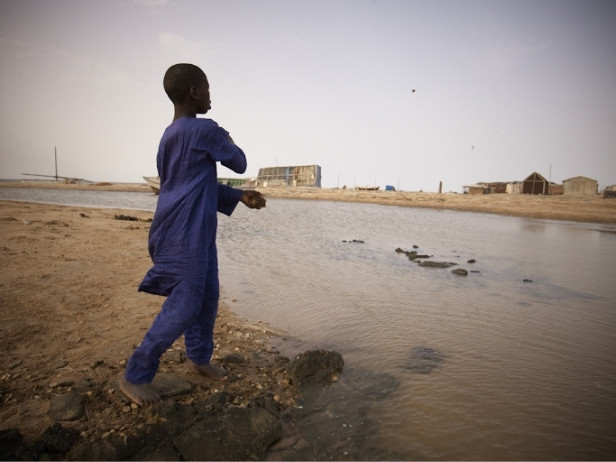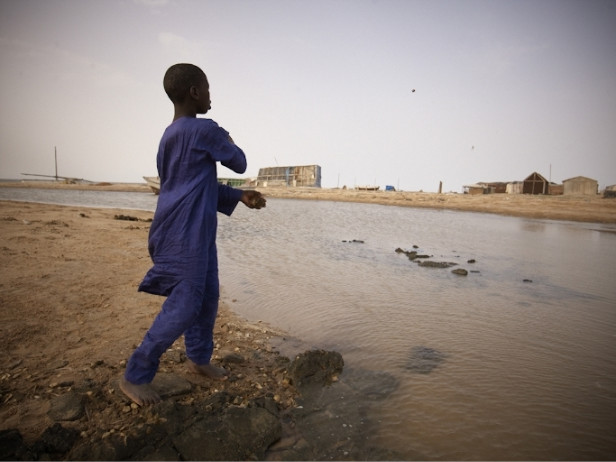 Rising sea levels are threatening the island homes of Mauritania’s Imraguen fishermen. Above, child plays alongside flooded landscape on Nair Island.Tim Bromfield / Atlantic Rising
Rising sea levels are threatening the island homes of Mauritania’s Imraguen fishermen. Above, child plays alongside flooded landscape on Nair Island.Tim Bromfield / Atlantic Rising
The Banc d’Arguin, where the Sahara meets the Atlantic in Mauritania, is a staging post for over two million exhausted migratory birds from Europe and Siberia. Terns dive for fish, dolphins raise curious heads to the terrestrial world and crabs promenade through an octopus’s garden. This abundance is fed by the coastal upwelling, a wind-driven fountain of life bringing cooler, nutrient-rich water towards the ocean surface.
However, this unique ecosystem is threatened by sea level rise. Antonio Araujo, Director of La FIBA’s (Fondation Internationale du Banc d’Arguin) conservation program, says “the catastrophe that is approaching us is a reality now.” The Banc d’Arguin is so flat that it is impossible to hold the tides back, already there are visible impacts.
Nair, one of 14 low-lying islands in the Banc, is an important breeding site for spoonbills. In the last 10 years rising sea levels have reduced its size by half. Each year more than half the island’s spoonbill nests are flooded and the eggs lost.
La FIBA has built a nesting platform above the high tide mark, but Araujo remains concerned; “it is difficult for ecosystems to survive such physical and biological stress.”
The Imraguen fishermen are also affected. In 1997 spring tides divided their village, Iwik, in two. The school and four houses were lost and every year since the sea has eaten more. This is an added hardship in an already harsh environment. The Imraguen’s closest source of drinking water is 45km away.
Araujo thinks the village will be forced to move in the next few years. The Imraguen will have to leave their boats unattended on the shore and suffer an additional workload, bringing their catch 500m inland everyday.
The Banc is an important nursery for a large number of species caught by the EU fleet and its loss would be devastating for the industry. Araujo stresses this is not an isolated problem for a remote community. There is no point investing in conservation projects in Europe without conserving birds’ wintering grounds in the southern hemisphere. “If the Banc is lost, 40-50% of the waders of the Palaearctic will disappear,” he says. Bird watching in Europe will never be the same again.



